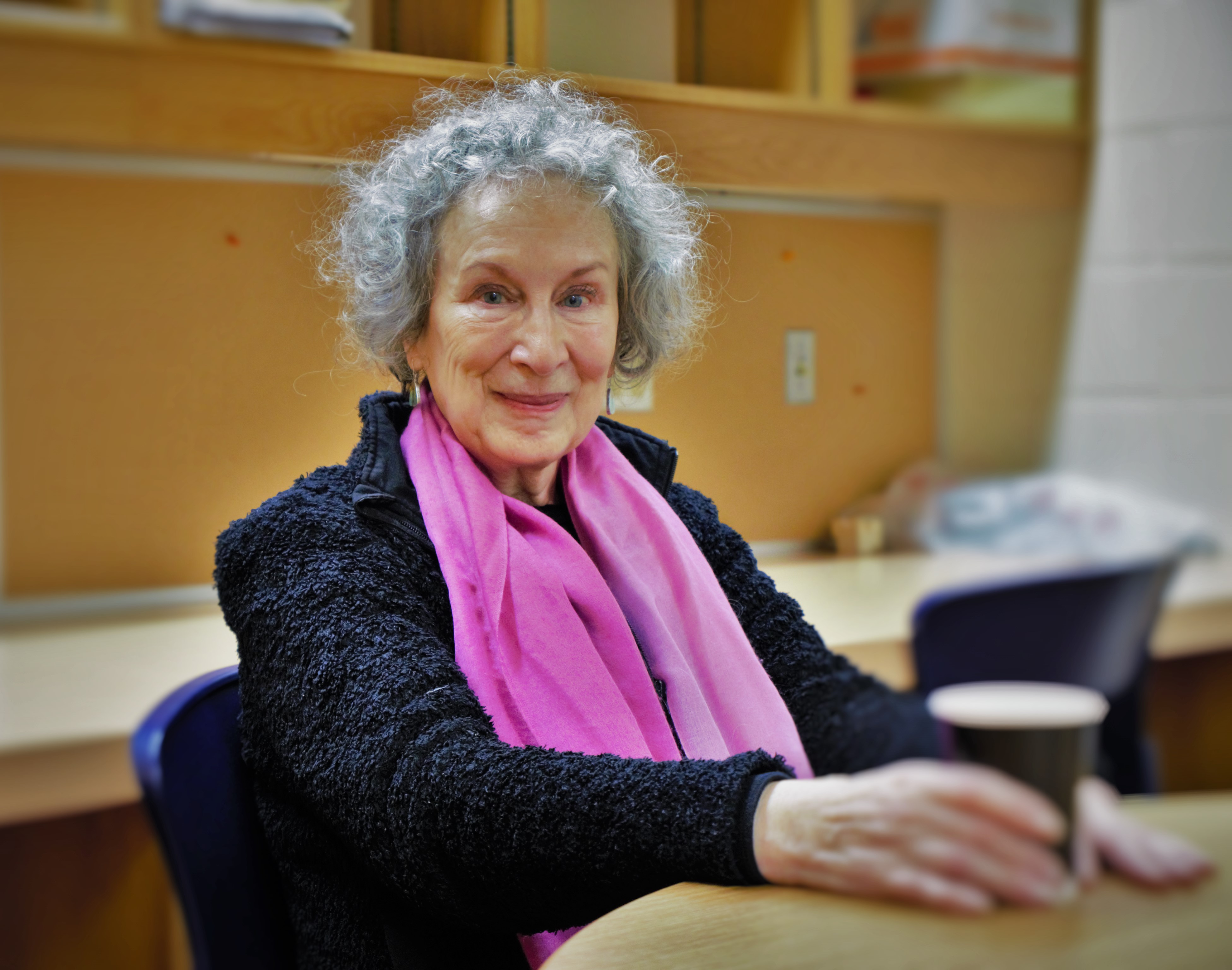By Daniel Melchior
Last week, a moment that would be treasured for many in the Laurentian community commenced, Margaret Atwood attended her final birthday dinner at Laurentian University on Nov. 19, marking the end of a ten-year tradition.
Many fans of Canadian literature gathered for an intimate evening conversation with Laurentian Chancellor Steve Paikin and esteemed author Margaret Atwood.
Following a dinner held in the Brenda Wallace Reading Room, I had the chance to sit down and speak with Atwood.
Although this may have been the final birthday celebration for Atwood at Laurentian University, it is safe to say that the past ten years have been cherished and respected.
Happy Birthday, Margaret Atwood.
Q: You are turning 75: can you some your life this far up with just one word?
At first she said that it was impossible to describe one’s life with a single word. She then responded, “Can I use an imaginary word, let’s say awesome? It covers both the good and the bad, doesn’t it?” It wouldn’t be a surprise that this same imaginary word would describe the general feeling of the interview.
Q: Firstly, we need to ask, why end the tradition now? Why 10 years?
She started by thanking all who helped organize the event in the first place and began to celebrate the fact that “we accomplished a lot,” referencing the Margaret Atwood Scholarship Fund. She continued, “it’s ending because those original people who started the event are all retiring, or have already retired, and it is difficult to organize.” She does, however, hope to see the scholarship fund continually grow.
Q: What has been your most memorable moment, of the 10 years?
“Well, the student theatrical performance of some of the short works was nice, and the film that they made on Manitoulin Island which told a story about some ladies wanting to have a Margaret Atwood reading group but no one would come unless they turned it into a bingo,” after a brief stint of chuckling she continued, “and of course, the ‘Waiting for Atwood’ canoeing saga: it has always been pretty good.”
Q: Say this event was never conceived ten years ago, what reasons would you have to come to Sudbury? What here inspires you?
“Sudbury is a big example of people regenerating, especially in the environment – it deserves to have some attention called to it,” continuing on to say that she can “vividly remember the moonscape period perfectly well, and it was at that time that people decided to not live in a city where nothing was living anymore. They brought back nature, trees, birds, plants, and fish, all important.”
Q: Given the discussion of the environment, I had to ask: what do you think of the plans to tear down the super stack?
“Simply, better to be torn down, then falling down.” She added a comforting note, “just have a Stack Brew.”
Q: A curveball question: what has been your darkest thought?
“Dark is relative.” For a moment we in the room were somewhat stunned by the poetic nature in which she said this. “Many find my works dark, yet many find them funny, and then there are those that find them both dark and funny. I’m quite a cheerful person; it’s in my work that my Mr. Hyde emerges.”
Q: I know of your love for zombies, so I have to ask: Imagine, amidst a zombie apocalypse, you are running through a library. You have to choose two books: one to bring with you, one to use as a weapon. Which are they?
After asking why she was in a library and then pondering her choice, she answered with, “I would use the Oxford English Dictionary as the weapon. That’s big enough. I think I would choose a comic book for the journey,” eventually deciding on a Batman comic.
Q: Lets get serious again: regarding your newest book, Stone Mattress, what was [were] the inspiration[s]?
“The cluster of coincidences that shaped the stories… well, I really was on a ship in the arctic, and we really were discussing how one would get away with a killing on such a ship.” Graeme Gibson had the answer pretty quickly; apparently the way to do it is to kill the person before getting on the ship and throughout the journey, act as if they are still on the ship and rearrange the stuff in their room to make it look like someone is living there. “I always wanted to write a book about a cut-off hand.”
Q: If you could have a drink with anyone, alive or dead; who would it be and what drink is it?
“Single Malt Scotch, straight up, no ice. And I am sharing it with someone who I know and enjoy the company with. Graeme Gibson, with whom I have a drink with every night.”
Q: Fifty years from now, how do you want to be remembered?
“I am not going to be there, so I don’t really care. Do you want to be remembered fifty years from now for just one thing that you have done? No. If you are not doing the remembering, it doesn’t matter, they aren’t your memories.

